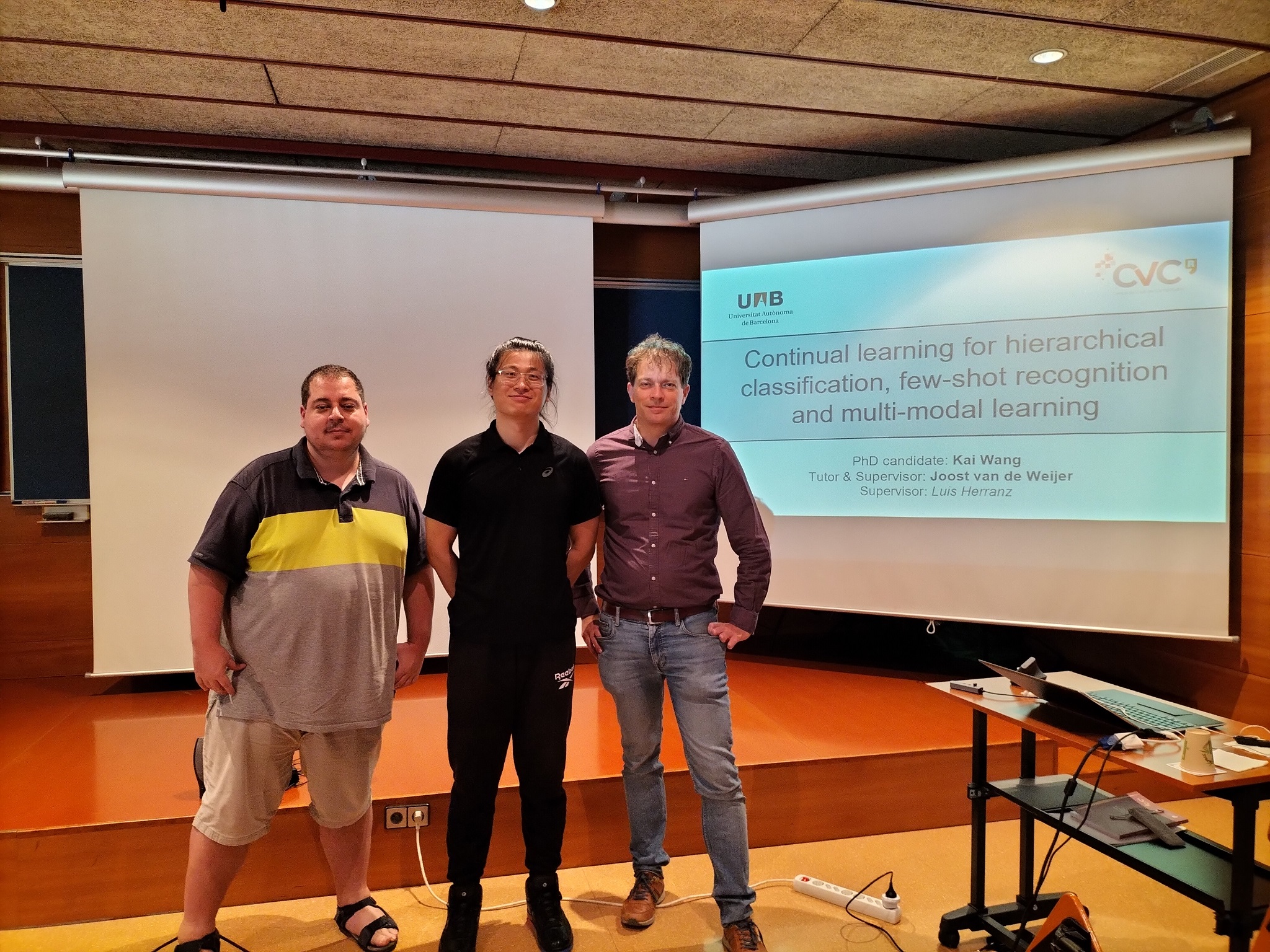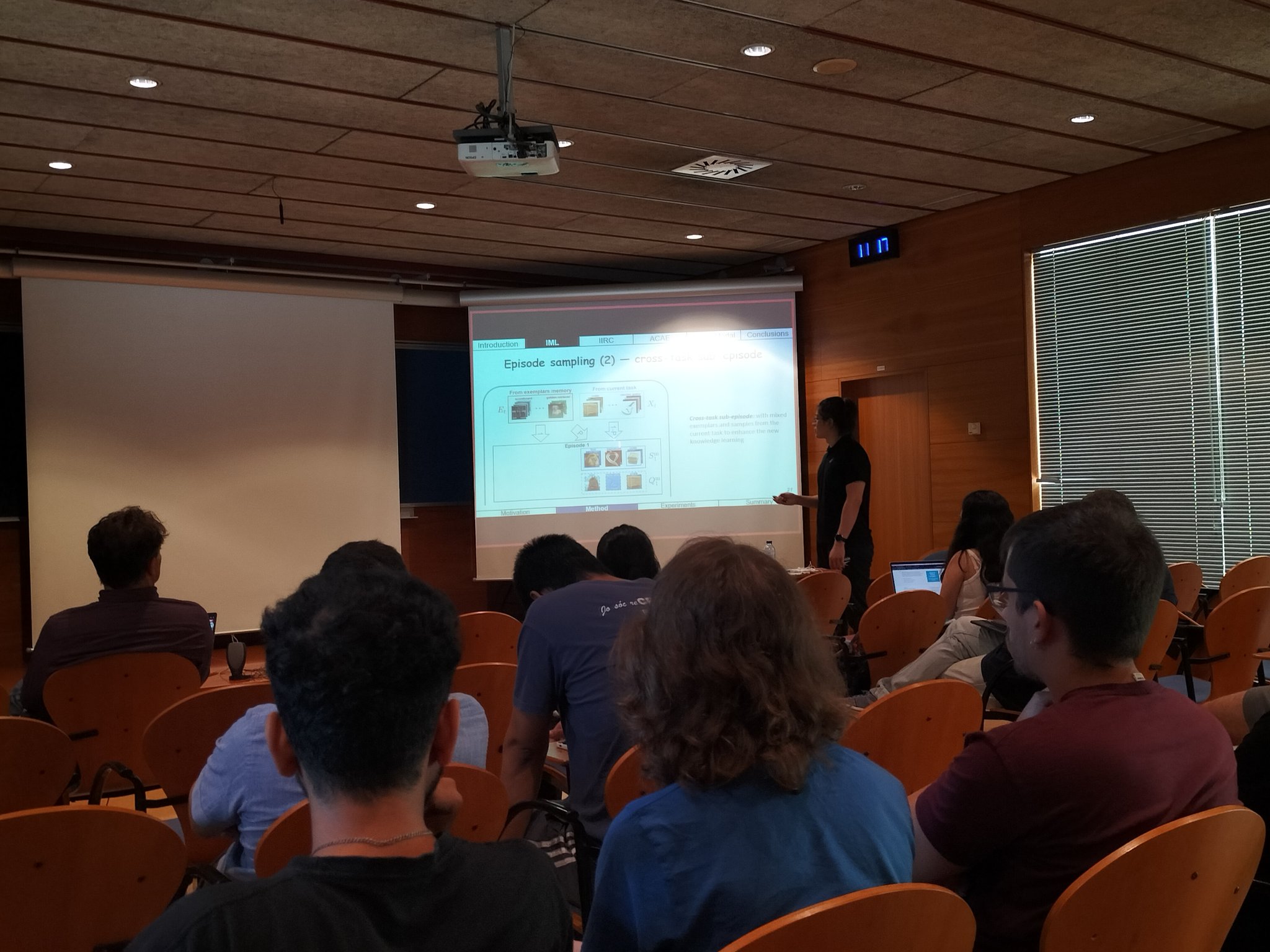
CVC has a new PhD on its record!
Kai Wang successfully defended his dissertation on Computer Science on July 07, 2022, and he is now Doctor of Philosophy by the Universitat Autònoma de Barcelona.
What is the thesis about?
Deep learning has drastically changed computer vision in the past decades and achieved great success in many applications, such as image classification, retrieval, detection, and segmentation thanks to the emergence of neural networks. Typically, for most applications, these networks are presented with examples from all tasks they are expected to perform. However, for many applications, this is not a realistic scenario, and an algorithm is required to learn tasks sequentially. Continual learning proposes theory and methods for this scenario.
The main challenge for continual learning systems is called catastrophic forgetting and refers to a significant drop in performance on previous tasks. To tackle this problem, three main branches of methods have been explored to alleviate the forgetting in continual learning. They are regularization-based methods, rehearsal-based methods, and parameter isolation-based methods. However, most of them are focused on image classification tasks. Continual learning of many computer vision fields has still not been well-explored. Thus, in this thesis, we extend the continual learning knowledge to meta-learning, we propose a method for the incremental learning of hierarchical relations for image classification, we explore image recognition in online continual learning, and study continual learning for cross-modal learning.
In this thesis, we explore the usage of image rehearsal when addressing the incremental meta-learning problem. Observing that existing methods fail to improve performance with saved exemplars, we propose to mix exemplars with current task data and episode-level distillation to overcome forgetting in incremental meta-learning. Next, we study a more realistic image classification scenario where each class has multiple granularity levels. Only one label is present at any time, which requires the model to infer if the provided label has a hierarchical relation with any already known label. In experiments, we show that the estimated hierarchy information can be beneficial in both the training and inference stage.
For the online continual learning setting, we investigate the usage of intermediate feature replay. In this case, the training samples are only observed by the model only one time. Here we fix the memory buffer for feature replay and compare the effectiveness of saving features from different layers. Finally, we investigate multi-modal continual learning, where an image encoder is cooperating with a semantic branch. We consider the continual learning of both zero-shot learning and cross-modal retrieval problems.
Keywords: continual learning, zero-shot learning, image recognition, cross-modal retrieval, few-shot learning.















